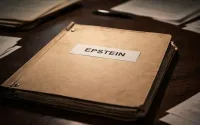16 August 2006Stephen Castle
Why is Cyprus back in the news?
The status of the Mediterranean island has been a running sore since 1974 when it was divided between the Greek Cypriot-controlled south and the Turkish Cypriot-dominated north. But now the row has embroiled the EU, threatening to scupper talks on Turkey's bid to join the EU. The Greek-controlled, and officially-recognised, Republic of Cyprus joined the EU in 2004. That means Turkey must open its ports and airports to Greek Cypriot boats and planes. Ankara says it will only do so if the EU agrees to honour a pledge to end the economic isolation of Northern Cyprus.
So what is Northern Cyprus?
The self-proclaimed Turkish Republic of Northern Cyprus occupies just 37 per cent of the island. But that includes some of its most beautiful and unspoiled scenery. Many foreigners have fallen in love with the north, including Lawrence Durrell. Northern Cyprus is recognised only by one country - Turkey - and has been economically-isolated since the 1970s. There are no direct flights from the UK. But while the southern part of the island has seen mass tourism take off, the north retains an undeveloped charm. Its population is around 200,000 although many Turkish Cypriots who emigrated have been replaced by settlers from Anatolia. One well-known resident is Asil Nadir, the fugitive tycoon who fled there from fraud charges in Britain in 1993.
What caused the island's division?
On 15 July 1974 the military government in Athens supported a coup by Greek Cypriot army officers seeking to achieve 'enosis' or union with Greece. Five days later Turkey sent in troops with the aim of protecting the Turkish Cypriot community and heading off the possibility of a unified Greece and Cyprus. The soldiers have never returned. In all, about 160,000 Greek Cypriots fled to the south while around 50,000 Turkish Cypriots moved north. The result was that the island was divided along a line stretching from Morphou in the west through Nicosia to Farmagusta with a mined buffer zone patrolled by UN peacekeepers. Cypriots can now cross the green line but it remains both a practical barrier and a symbol of division. On either side there are several miles of derelict buildings, untouched since their occupants fled in 1974.
Why has Northern Cyprus become a magnet for Brits?
Many Brits cannot resist a bargain home in the sun and, with the economy in the doldrums, prices are low in Northern Cyprus. As many as 6,000 Britons may have piled in. For the homesick, Northern Cyprus offers a British pub, several UK-run restaurants and no need to speak anything other than English. For those gambling that reunification will never happen, property on an idyllic Mediterranean island comes cheap. The hitch is that, if a deal is done to reunify Cyprus, property deeds may become worthless as those who owned the land before 1974 reclaim it.
Is there a plan to resolve the dispute?
None other than the UN Secretary General, Kofi Annan, has put together a proposal for the re-unification of the island. This would see a united Cyprus run as two Swiss-style cantons. There would be a right of return for Greek Cypriots, a symbolic, alternating presidency, and cash to compensate some of those who agreed to waive property rights. Though it was rejected by the Greek Cypriots in 2003 it remains the basis for any potential settlement.
The UN might also be able to help lift the economic blockade on Northern Cyprus by taking over administration of its ports and airports. This would mean goods could be exported without a Turkish Cypriot customs stamp - something the Greek Cypriots cannot accept. This could persuade Ankara to accept Greek Cypriot ships and planes. Such a solution would avoid a crisis in Turkish EU membership talks and help the political climate in Cyprus.
Which side is the real obstacle?
Under its intransigent and bombastic former leader Rauf Denktash, Northern Cyprus came to be seen as an international pariah. Mr Denktash scuppered hopes of a UN peace deal in 2003. Then things changed. A year ago his people voted "yes" in a referendum on the UN plan, which would have brought them back into the international fold and catapulted them into the EU. But the Greek Cypriots rejected it, knowing they had already been guaranteed a place in the EU anyway. Seen from the west, Mehmet Ali Talat, the Turkish Cypriot leader, is more personable than his hardline Greek Cypriot counterpart, Tassos Papadopoulos. The trouble is that that Mr Papadopoulos's country is a full EU member.
How is Northern Cyprus coping with isolation?
With difficulty. With few opportunities at home many young people have emigrated. There are now said to be more genuine Turkish Cypriots in London than in Cyprus. Cut off from the rest of the world, the economy is reliant on trade with Turkey and some tourism. Under Mr Denktash a strong culture of cronyism developed. When the Turkish Cypriots voted "yes" in their referendum on unification the EU promised to help. But European plans for direct trade and financial aid to Northern Cyprus have been blocked by the Greek Cypriots.
If even Bosnia can resolve its problems, why not Cyprus?
Land remains at the heart of the impasse. On a small island almost everyone either has a grievance over property, or knows someone who has. The best chance to resolve the crisis was in 2003 - before Cyprus was told it could join the EU. Brussels then had leverage over the Cypriots because EU membership could have been conditional on Greek Cypriot support for a united Cyprus. But the former Turkish Cypriot leader Mr Denktash let his Greek-Cypriot adversaries off the hook by vetoing the Annan plan. Now the Greek Cypriots hold most of the cards and know they need make few compromises.
The one factor that could persuade the Republic to compromise is the thought of the profits from developing tourism in Northern Cyprus if they could retrieve property and be allowed to invest there.
Can agreement ever be reached on northern Cyprus?
Yes...
* A workable UN plan in already on the table and has been supported by one side
* The EU wants a deal and will put pressure on the Greek Cypriots to accept it
* More than three decades has past since the island's division, giving time for memories to fade
No...
* The land row has been complicated by an influx of Turkish settlers and other foreigners who now occupy property
* Now in the EU, the Greek Cypriots hold too many cards and see no need to compromise
* The one historic chance to close a deal was in 2003 - and ther opportunity was missed






